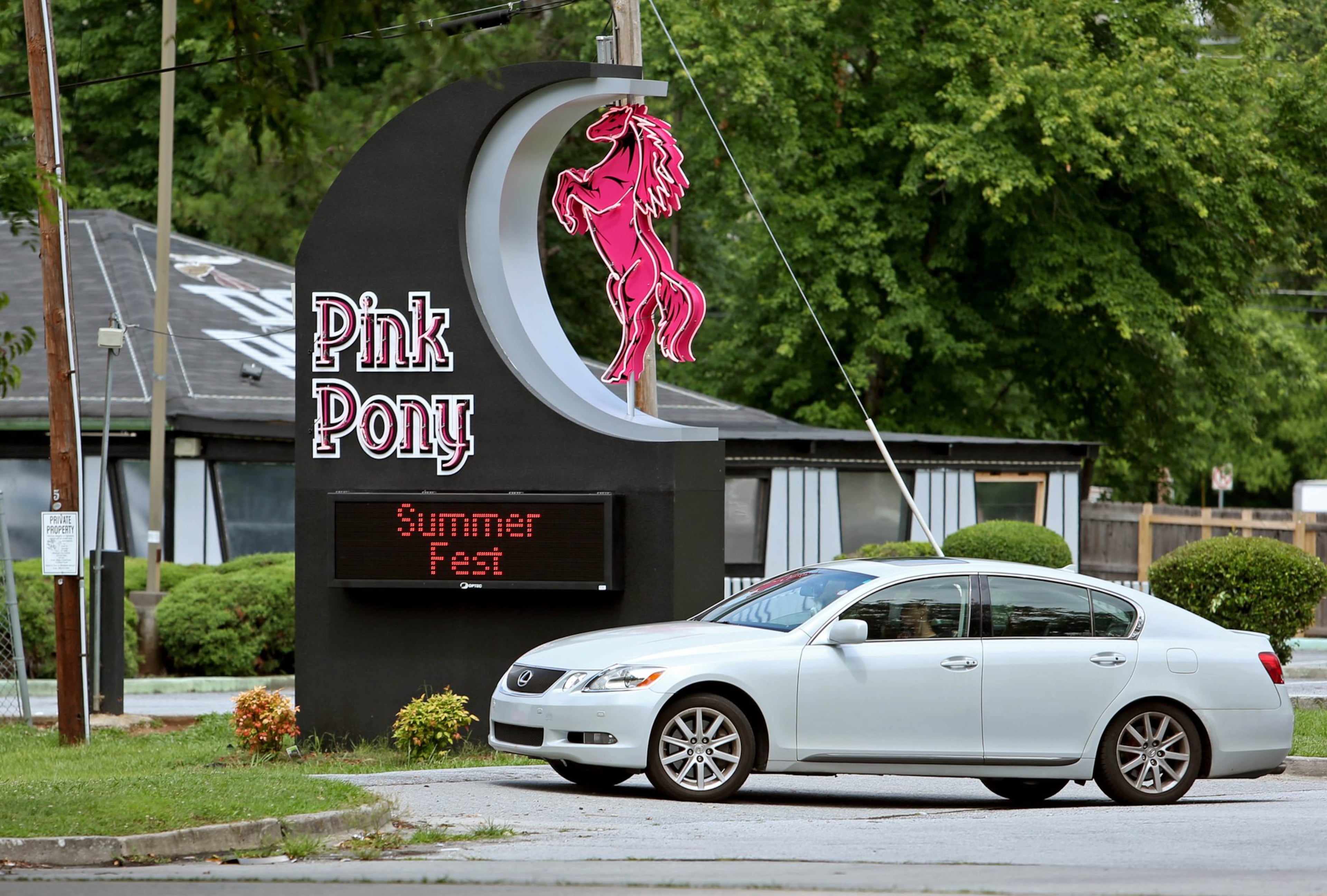Hours cut at Pink Pony strip club in Brookhaven after judge’s ruling
The Pink Pony is not exempt from new rules that require nightclubs to stop serving alcohol at 2 a.m. and prohibits liquor sales altogether on Sundays, the city of Brookhaven announced.
Brookhaven officials made this decision after a federal judge said it was likely unconstitutional for the city to allow the Pink Pony to pour alcohol until 4 a.m., two hours later than other clubs.
U.S. District Judge Thomas W. Thrash Jr. issued an injunction to prevent enforcement of the law after three clubs filed a lawsuit against the city.
The city may also require the Pink Pony to adhere to other rules that govern Brookhaven’s “entertainment venues.”
The reduction in hours came as a shock to Pink Pony executive vice president and chief financial officer Dennis Williams.
“One of the hardest parts of yesterday was explaining to my staff that we’re losing an hour-and-a-half of business that will affect their incomes and their families,” he said Thursday.

Brookhaven hasn’t asked the strip club to pay a $100,000 license fee it is demanding from other nightspots or to stop serving alcohol on Sunday.
“We were disappointed by the ruling as it pertains to the other entertainment venues, but the message from the federal court was clear: Brookhaven must enforce its laws equitably, and that includes the Pink Pony,” City Manager Christian Sigman said in a statement.
This change now casts uncertainty over the city's new alcohol laws and its 2014 agreement with the Pink Pony that allowed liquor sales until 4 a.m. nightly in exchange for a $225,000 annual payment and a promise to shut down as a gentlemen's club after six years.
“The terms and fees of the settlement agreement, under the new context issued in federal court, is being discussed between the legal counsel of the City of Brookhaven and the Pink Pony,” city spokesman Burke Brennan said Tuesday via email. “No final decision has been reached at this time.”
Cary Wiggins, an attorney who represents the three nightclubs that sued, said the venues are disappointed in how Brookhaven responded to Thrash’s ruling. These businesses, the Pink Pony included, are trying to follow the law and would have preferred to collaborate with the city on new regulations, he said.
“I’m not sure why the city would draft harmful, stringent laws designed to hurt my clients and Pink Pony, yet seek no input from them,” Wiggins said. “So long as no one is being harmed, I do not see a downside for the city to pursue a solution where different cultures can coexist.”
Wiggins said his clients will continue to pursue their lawsuit, which alleges the new liquor laws were drafted in a way that discriminates against businesses who cater to black club-goers. If the plaintiffs win their suit, they will ask the city to reimburse them for any lost revenue.
“The 2017 alcohol ordinance, we contend, remains unconstitutional in its entirety,” Wiggins said. “If we are right, the city will eventually pay for the damages it is causing.”



